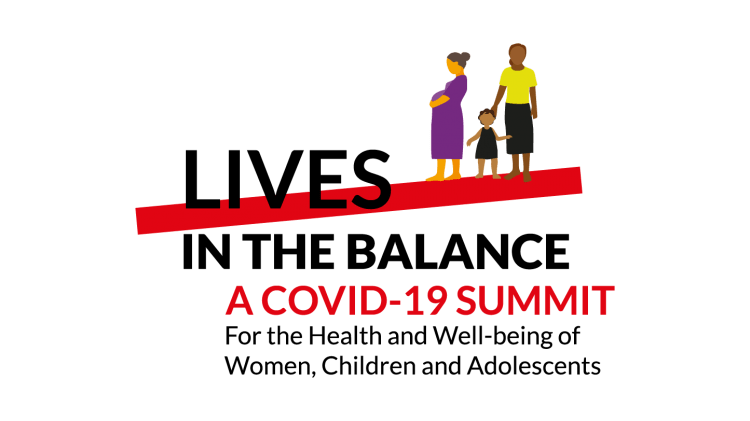By Zayamu Hassan
Over 1000 leaders from across the world have met to identify areas of investment in pro-equity programmes and policies to arrest the devastating social and economic effects of COVID-19, especially on women and children.
The leaders converged virtually in a meeting christened: Lives in the Balance: Equity in COVID-19 Response and Recovery.
Government leaders from Nigeria, South Africa, Liberia, Kenya, Panama and Malawi spoke out at the two-day event about the devastation of the COVID-19 pandemic on women’s, children’s, and adolescents’ health, and unveiled targeted, time-bound commitments for focused action.
The two-day Lives in the Balance meeting was organized by PMNCH, together with the CORE Group, the Global Financing Facility for Women, Children, and Adolescents, and Gavi, the Vaccine Alliance.
Meeting participants including those from civil society, the UN, academia, the private sector and governments, discussed solutions to mitigate the direct and indirect impacts of the pandemic, including concrete and measurable commitments to investment and policy change.
These commitments respond to rising need, given that progress toward the UN Sustainable Development Goals (SDGs) related to women’s, children’s, and adolescents’ health was already off track by some 20 per cent before the crisis, the COVID-19 crisis has highlighted the need for dedicated action for the most vulnerable.
Nigeria, which had announced a commitment of $2.3 billion at the December 2020 meeting for strategic interventions across the health sector during 2020-2028, updated participants on the government’s efforts to protect and support health workers across the country, 70per cent of which are women.
“We are making sure salaries are paid on time and setting up infection control measures, made compulsory. Capacity building continues –people continue to have more training.
“We ensure that when it is time for leave, that people go on leave, and that connectivity between the states and the federal government with respect to task-shifting and task-sharing among health workers is being properly managed,” said Minister of Health, Dr. Osagie Ehanire.
In a statement, the organisers of the meeting noted that in addition to the ongoing and catastrophic direct impact of COVID-19 in many parts of the world, women, children, and adolescents are affected indirectly because of widespread disruptions to essential health, nutrition, and social services under lockdown conditions.
This increases the risk of mortality and morbidity, including from treatable and preventable causes, denying the right to protection and care.
On her part, the Board Chair of PMNCH and former Prime Minister of New Zealand, Helen Clark, said: “Taken together, the direct and indirect effects of COVID-19 have rolled back decades of global effort, and threaten to disrupt the future trajectory for progress and development massively.
“COVID-19 is deepening and magnifying social inequalities compounded by ethnicity, gender, income, geography, and other factors. We must act now, not just to protect progress previously made, but also to work towards a world that is far more equitable than the one that existed before the pandemic.”
The United Nation Population Fund (UNFPA) estimates that, in 2020 alone, 12 million women experienced disruptions in family planning services due to the pandemic, with an estimated 1.4 million unintended pregnancies across 115 low-and middle-income countries.
Additionally, a recent Global Financing Facility review of 36 partner countries showed there has been up to a 25 percent drop in coverage of essential health interventions, hitting women and children the hardest.
Women, who according to WHO makeup 70per cent of the global health and social workforce and bear the largest share of COVID-19 infections among health workers, hold only 25per cent of senior positions in national COVID-19 response leadership teams.
Expressing solidarity to the PMNCH Call to Action, Dr Luis Francisco Sucre, Minister of Health of Panama noted that: “In the context of COVID-19, we have fulfilled our commitment to ensure that within the first 100 days of 2021, the vaccination of health workers, the elderly, and pregnant women is underway, as part of the declaration of equity of vaccines and a symbol of hope to overcome this pandemic and its inequalities.”
Malawi, on the other hand, highlighted a presidential initiative to expand the health workforce during COVID-19; staffing budgets this year have increased by nearly 50per cent, improving quality of care for women, children and adolescents.
“The pandemic has put so much stress on our workforce, especially those working in hospitals.
“Our President, His Excellency Dr Lazarus Chakwera, has made a directive that we should employ 1,380 additional health care workers to support the response.
“This was an opportunity to increase our numbers, so that we offer quality health care service to our people, especially the women, children and adolescents. In our national budget, we have set aside $US58.3 million (47 billion Kwachas) for personnel, which is a 45 per cent increase from last year,” said Khumbize Kandodo Chiponda, Minister of Health of Malawi.


